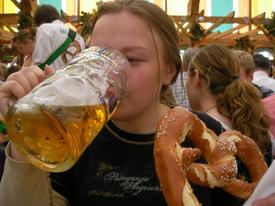Why you gain weight if you eat more than your cut
Replies
-
This makes sense, hopefully I can remember it when the time comes.
 0
0 -
I am always having to remind people of that when they complain that they gained 5 lbs after a weekend of excess.0
-
This is super helpful! Thanks so much for sharing the information that you have learned.0
-
Bump0
-
Hi, I've only been on maintenance 2 weeks and actually didn't up Calories too much as wanted to do if slow. I've already put back 1.5 llbs out of a 9 llb loss! It's took about 3 months to lose the 9 llb and I want to maintain at 112 llbs. But what yr saying I need to do is lose a bit more first say another 3 -4 llb! To be able to maintain ish at 112! I do understand the science of it, it just makes me sad I've got to lose more as these 9 llbs were such hard work!! Hope i haven't mis understood!!
Or you could just not care about water weight...it's water, not fat.0 -
bump0
-
Helpful. Thanks.0
-
Thank you for this!! I'm working on my last ten and am beginning to plan for maintenance. This is incredibly helpful!0
-
Right on point with your advice!! Thanks so much!! My original goal was 145 then I dropped it to 140 and now I am at 137 as the goal...I am scared to add the maintenance calories in but will try it and see!
Thanks again!!0 -
Thanks so much for this, really timely for me. I bummed myself out over the weekend when I went up in weight eating at around what I thought will be my maintenance calories, worrying that maintenance for me was going to be lower. But of course what you say makes loads of sense. Also, PPs are right it's not about the scale, if I could just convince myself of that when tempted to step on the bathroom scale...0
-
AWESOME!! Thank you!!!0
-
bump0
-
Thanks for the post and I am at that stage now.
I want to maintain a 12 stone weight but currently maintaining 12 stone 3 to 12 stone 7 for 2 months now (172 pounds). I seem to hold onto about 3-4 pounds of glucogen/water weight . Therefore, I am aiming to go down to 11st 10. However getting there is hard work.0 -
Thanks for this!
I started out at 141 lbs. For two weeks, I ate 1300 calories per day and quickly went down to 134 lbs.
Last week I had some work events to attend, serving a lot of food I couldn't say no to. I tried to minimize the extra cals, ending up at around 1500 cals a day. i thought, "it's still under what I burn from daily activities, so maybe I haven't lost as much or worse yet, have remained at the same weight". I weighed yesterday, and I was back up to 136! I couldn't believe. Felt wronged and pissed off. Now I'm doing 1300/day again and won't stop till I'm at 123 lbs. I feel like I'm at war with my body and have to "show it what's what"!0 -
Wow, this IS helpful.0
-
Hear, hear!0
-
BUMP0
-
This is why it's best to ignore the scales for the most part. Do measurements, go by clothes size and how you feel generally. If you look great and feel great, why concern yourself with a couple of numbers?0
-
I wish I would have seen this a week ago! I ate a little more than I should at a birthday party and then struggled a lot with telling myself the scale didn't matter when I gained 5 lbs. This post has opened my eyes. I didn't really gain any fat. The scale was back down today. This makes SO MUCH SENSE.0
-
Great post. Water retention is a funny thing, most people never seem to consider it. That's why we have a hundred freak-out threads a week. "I had a cheat day and I gained 5lbs!" Well, if you think about it for more than 3 seconds, you'll realize you probably didn't eat 17500 calories over your maintenance. All those carbs (and sodium) just causes a bunch of water retention. Not a big deal. Same story with this thread and eating at maintenance. Personally that's why I hate using weight as a measurement, it doesn't mean much. Wish there were a way to easily and accurately measure bodyfat percentage, that would be a lot more helpful to your actual progress.
My problem is that I used to be used to that 2 to 3 pound fluctuation. Now that doesn't seem to happen - I gain that "water weight" and it takes a week and a half to lose it again. Frustrating!!!0 -
bump0
-
My take on fluctuations...
A close horse race is won by a nose, not by a tail or by being the first set of stirrups to cross the line. In my book, if my weight is trending down then my current weight is the lowest I have seen recently. I am not too concerned about why fluctuations happen (though I appreciate the explanation) but accept that they do happen. If I don't see that lowest weight go lower for an extended amount of time then I will re-evaluate. When I reach my goal, I won't go into maintenance until I get below it but I won't claim the low as my new weight because I won't be trending in that direction anymore. My point is that you really shouldn't get hung up on day to day readings if you know your burn is more than your consumption.0 -
bump!0
-
Pretty much what someone else told me in my thread. Thanks for posting this, it makes it very clear. Since the amount your body stores varies by lean body, it helps to explain why my 13-15lb gain in a couple of days was so high. I'm sure there's a couple lbs of fat mixed in there as well.
Aside from fluid intake and lowering sodium, is there another way to get the body to quickly release the storage weight?0 -
Bump! Very interesting0
-
If you want to truly weigh yourself with most water weight dispensed of, take a day at low carb (<45g for me) and weigh the next morning after a nice long pee.Pretty much what someone else told me in my thread. Thanks for posting this, it makes it very clear. Since the amount your body stores varies by lean body, it helps to explain why my 13-15lb gain in a couple of days was so high. I'm sure there's a couple lbs of fat mixed in there as well.
Aside from fluid intake and lowering sodium, is there another way to get the body to quickly release the storage weight?0 -
Pretty much what someone else told me in my thread. Thanks for posting this, it makes it very clear. Since the amount your body stores varies by lean body, it helps to explain why my 13-15lb gain in a couple of days was so high. I'm sure there's a couple lbs of fat mixed in there as well.
Aside from fluid intake and lowering sodium, is there another way to get the body to quickly release the storage weight?
Is there a particular reason you'd want to. I mean glycogen stored in your muscles is a good thing.0 -
Aaaah. that explains a lot. thanks!0
-
Pretty much what someone else told me in my thread. Thanks for posting this, it makes it very clear. Since the amount your body stores varies by lean body, it helps to explain why my 13-15lb gain in a couple of days was so high. I'm sure there's a couple lbs of fat mixed in there as well.
Aside from fluid intake and lowering sodium, is there another way to get the body to quickly release the storage weight?
Another question to add to this... you eat your high carbs or what have you and gain the 5lbs for storage. If you continue eating at that level of sodium/carbs and are still in caloric deficit wouldn't you begin losing the weight aside from the stored? Are simple carbs and sodium a main contributor to the storage or is it simply caloric? I seem to maintain by simply eating a higher level of carbs despite the caloric deficit. As in, if I were to consume 2200 calories and 180g of carbs I don't drop weight. I consume 2200 calories and drop carbs to 100g and my weight drops week after week.
if that makes any sense?0 -
What an awesome, logical way of explaining how I can go out of town one weekend, indulge a little here and there and come back 10lbs heavier! In the past, I kept telling myself, oh it is just water weight, but still would get bummed enough that sometimes I didn't get back on the wagon and just continued to eat terrible. Knowing this, you have made me really think about 1. Not over-indulging and 2. Don't freak out when you put on 10lbs overnight! I can't even imagine actually getting to my goal weight, but if I ever do, I will give myself a 10lb leeway until I start freaking out.
Thank you! I am so going to share your explanation!0
This discussion has been closed.
Categories
- All Categories
- 1.4M Health, Wellness and Goals
- 398.2K Introduce Yourself
- 44.7K Getting Started
- 261K Health and Weight Loss
- 176.4K Food and Nutrition
- 47.7K Recipes
- 233K Fitness and Exercise
- 462 Sleep, Mindfulness and Overall Wellness
- 6.5K Goal: Maintaining Weight
- 8.7K Goal: Gaining Weight and Body Building
- 153.5K Motivation and Support
- 8.4K Challenges
- 1.4K Debate Club
- 96.5K Chit-Chat
- 2.6K Fun and Games
- 4.8K MyFitnessPal Information
- 13 News and Announcements
- 21 MyFitnessPal Academy
- 1.6K Feature Suggestions and Ideas
- 3.2K MyFitnessPal Tech Support Questions


























